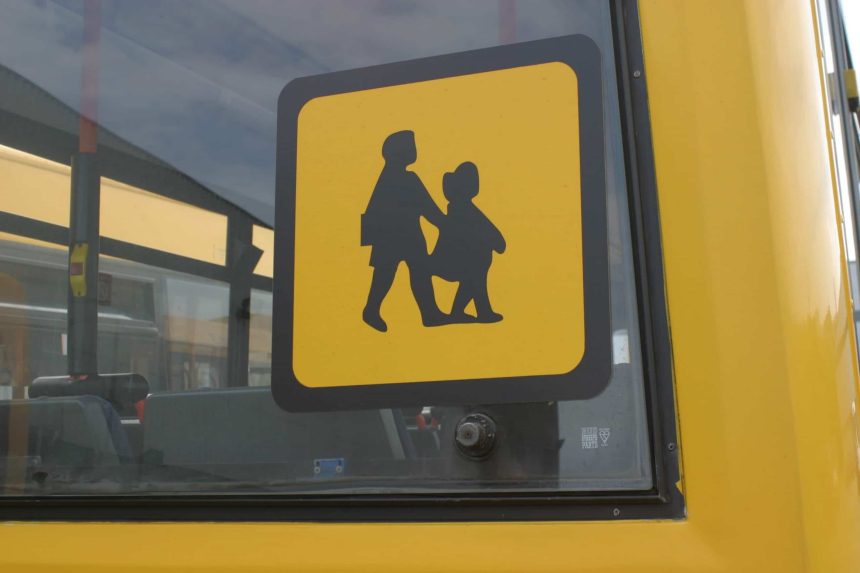Thirty years after the M40 minibus tragedy in which 12 children died, an appeal is being made to end the two-tier system of school transport safety standards
On the 30th anniversary of the M40 school minibus crash in Warwickshire, the parents of one of the 12 children who died are leading a fresh campaign to make school transport safer.
Steve and Liz Fitzgerald’s daughter, Claire, was among the victims of the tragedy in which the school minibus was being driven by a teacher, who also died, on 18 November 1993.
They are calling on the government to have the exemption which allows schools to operate minibuses without an O-Licence removed.
Supported by BUSK (Belt Up School Kids) and teachers’ union NASUWT, they are calling for a revision of the “two-tier” system which allows schools to transport children without necessarily being subject to the same regulatory landscape as operators with an O-Licence, although it must be noted that some schools do hold such a licence.
The incident was partly the trigger for the introduction in 1997 of the requirement for seatbelts to be fitted and worn and the banning of the “crew-type” minibus which was used. However, campaigners say the main causes of the deaths have still not been fixed.
Parents’ call to action
The Fitzgeralds say they want lessons learned from the tragedy to help prevent similar accidents happening in future.
Stressing they are speaking for only their family, Mrs Fitzgerald says: “We now are very lucky to have grandchildren and they are, in our view, possibly in the same situation as Claire was.
We’re immensely grateful to Pat Harris (Director and Founder of BUSK) for having rigorously campaigned for seatbelts and that is brilliant — as is the fact that crew minibuses are banned.
“But the real cause of the deaths of our children was the management of the whole situation beforehand — as well as the fact that the teacher had worked 16 hours teaching, supervising and driving. That is unacceptable and it is unfair for staff to feel they have to drive if they are asked to by a head.”
Wayne Bates, National Negotiating Official for the NASUWT, says: “It’s rather disconcerting that, 30 years after the M40 crash, we’ve still got the situation where teachers and other support staff in schools could be driving minibuses after a very long day into the small hours of the following day.
“There’s nothing in the legislation that prevents that. Our position is that a change in the legislation is long overdue.”
What we’d like the coach and bus industry to do is highlight the safety of what you’re doing every day – Steve Fitzgerald
Mr Bates says part of its own campaign over the coming months will involve liaising with coach sector trade bodies.
Ms Harris makes clear that she wants schools running minibuses to either obtain an O-Licence or use professional coach operators.
“There is a school quite close to me, it is a private school and it operates a whole fleet of vehicles, but has an O-Licence and employs a Transport Manager and PCV drivers who are Driver CPC-qualified and do everything that goes with having an O-Licence,” she says.
“So, if one school can do it, they all can. I’m referring to private schools because they charge extra to cover those costs and I don’t know of any parents who would refuse to pay the extra costs if they knew the importance of paying it, if they understood the difference between the two different types of operation.”
What can the industry do?
Mr and Mrs Fitzgerald say the coach industry has always been very supportive of them, but Mr Fitzgerald says: “What we’d like the coach and bus industry to do is highlight the safety of what you’re doing every day — because there are two options for schools: Get yourself an O-Licence, or don’t run minibuses at all and use professional businesses with a professional safety system.”
However, Ms Harris adds: “The difficulty is shown by one coach operator I spoke to recently who said, ‘I’m right behind this but we don’t want to upset the schools that we’ve got contracts with who already have their own fleet of minibuses and are doing it under Section 19 because they might not give us the work.’”
She adds: “But I think there comes a time when the coach industry needs to decide whether or not it’s going to stand up with BUSK and the Fitzgerald family and publicly say there’s a two-tier system.”

She feels that coach operators could also do more privately and locally to raise awareness among parents of the lower standards being followed before they sign to let their children go on trips.
She says: “I would like to ask all your readers who operate coach and bus companies, if they are parents as well, do they want their children being driven by a teacher who is not trained?
“If the answer is ‘no’, then can they not draw attention to the campaign? Could they each contact, say five, parents that they know who aren’t coach operators to make them aware?”
The Bus and Coach Association (BCA), which campaigned in the 2010s against what it said was misuse of Section 19 and Section 22 permits, succeeded via a High Court Judicial Review in getting the Department for Transport advice revised in 2021.
Former operator Martin Allen, who led BCA, feels the present-day trade bodies could do more on the issue. “The industry tends to lay back and let someone else do it and that’s the biggest problem,” he says.
Ian Ashman, another former who was also involved with the BCA campaign, believes the trade organisations “should be doing more”.
He adds: “The individual operators can’t achieve anything because they have no pull. The government’s not bothered because schools are getting transport on the cheap.
“I know from all the years I battled away that the only thing that’s driving this is cost and, as long as they’re getting a cheap job, they’re not bothered. The only time they’re worried is when people get hurt or killed.”
RHA and CPT promote safety
Trade bodies Confederation of Passenger Transport (CPT) and RHA both responded on this issue by backing safety improvements for school transport.
Keith McNally, CPT Operations Director, issued a statement which read: “Everyone driving a minibus should have a category D or unrestricted D1 licence and hold a Driver CPC. This would ensure that drivers are properly trained and understand the critical importance of transporting groups of passengers safely.
“Drivers should also adhere to drivers’ hours regulations, and this should be monitored by the organisation operating the minibus.”
RHA Operations Manager for Coaches Andrew Warrender says: “The view of RHA and its members is that safety on our roads is paramount, and we believe that all drivers should be trained to the highest standards.”





















![[3] Steve and Liz Fitzgerald](https://www.route-one.net/wp-content/uploads/2023/12/3-Steve-and-Liz-Fitzgerald-300x135.jpg)






